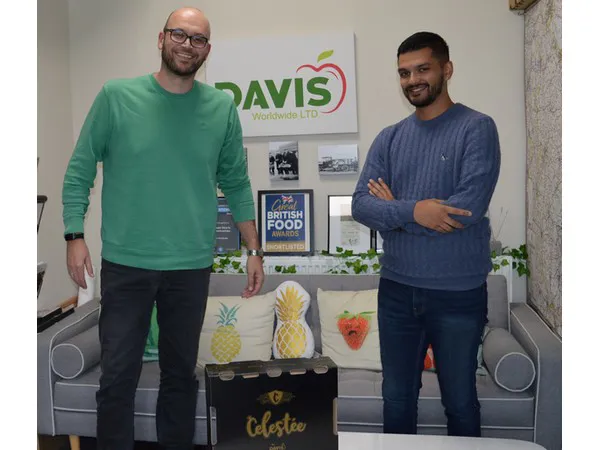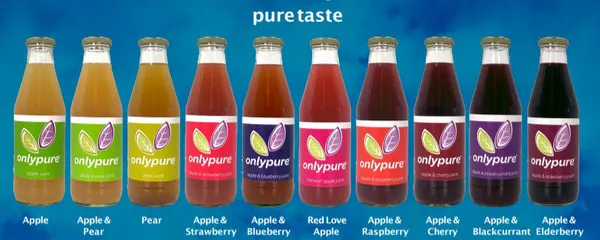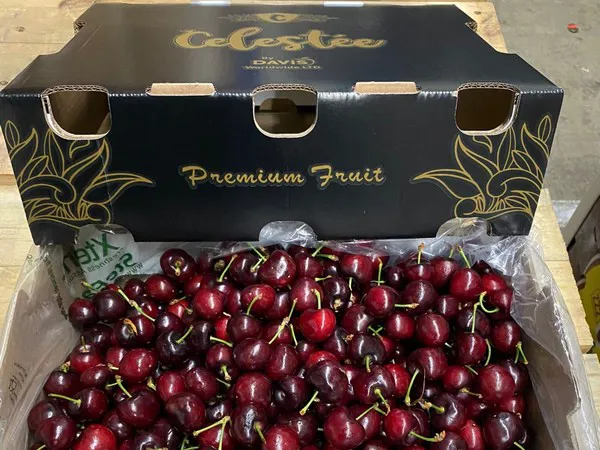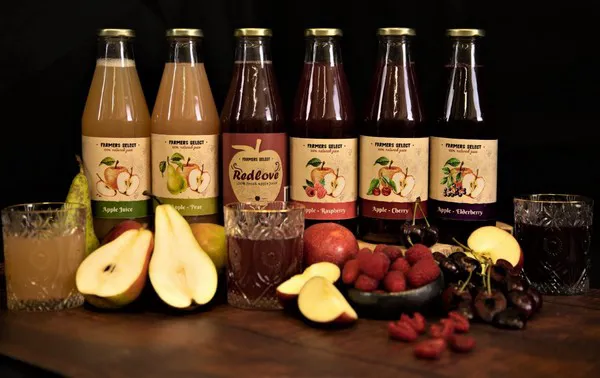The world of fruit and vegetable trading has changed in the last few years, it has become tougher, margins are smaller, delivery times longer but it is not all negative as long as you are able to adapt to the new environment in which we find ourselves.
Davis Worldwide has a history of doing things differently, having made the decision not to directly supply retailers many years ago, they do have some programs but also do trading alongside. This means they can work lean and adapt quickly to changes in the markets.
Paul Tomlinson - Managing Director and Mark Wright – Senior Commercial Manager at Davis Worldwide spoke about how the company has adapted to the new normal in the fresh produce trade.

Changing market place
Paul: “We are finding now that people are more willing not to do the order whereas before service level was key, people did whatever they could to fill the orders, in most cases now it is not feasible or worth the effort. Part of me agrees with letting the retailers feel the effects of it, they expect to have full shelves, when the shelves are empty that is costing them money. This year growers have seen higher costs for packing, labour, transport and so on, Brexit has also had a big impact.
When people couldn't get out during lockdowns they relied more on deliveries, that has been a fantastic plus for consumers, it also gives people more options. People are buying differently now and we so can sell differently. 80% of all fresh produce is sold through the retailers this means that if just 5 or 10% was sold differently it would give people options providing, we can give consumers more options for buying it.
Mark: Growers also have more options, for example Pick-your-own has become a more viable option as the labour and transport costs are increasing its a great option for strawberries. People also realised this was a fun option.
Paul: The current platform for selling produce is retail but what will happen if someone starts to do things differently? The veg box is challenging, not everyone buys into that as it can be expensive, although post lockdown some sales have been retained. A lot of people like to see what they are buying. In other sectors home delivery worked well and people have built on that.
It’s very difficult to tell how this will work going forward, people are going to get pay rises as the minimum wage increases it might have knock on effect, but household bills and fuels costs are increasing, food cost will also go up. We need an increase in fresh produce prices but retailers are trying to fend it off, but it will be a case of increases or empty shelves. In other countries fresh produce is, relatively speaking much more expensive and more seasonal.
Mark: The wholesale markets are a dying trend as they just don't get enough business which is a shame as they have some of the best produce and products that the supermarkets don't have.
People in the UK don't put value on fresh produce, if a pineapple goes up 50p or £1 they won't buy it or they don't want to pay £4 for a box of cherries, in countries like China fresh produce is much better thought of, people are conscious about what they eat and they want quality. Here it is about what is cheap.
Paul: There is a bit of a shift and people are becoming more aware of what they eat, the celebrity chefs have done a lot to help. They have also helped people understand what to with some exotic products. In days gone by we would go to a greengrocer who knew about the products and he would be able to explain to customers how to cook them while at the same time up selling the products but retailers don't have this. The danger is that if retailers don't sell products that the consumers want they might start to straight to the supplier.

Partnerships
Paul: At Fruit Attraction last month there was a bit of a buzz but overall, a real eagerness to want to trade, people can’t survive year on year as it has been for the last year, they are a lot more open to working differently and more and more partnerships are being formed, it’s the only way to survive. It will be hard to survive on your own.
This is already evident in Lincolnshire where FPN (Fresh Produce Network) a group formed by growers, packers and traders in Lincolnshire meet regularly to discuss options, sometime these companies are direct competitors but they still work together. 1200 lorries each day leave Spalding with imported and locally grown produce. 23% of Lincolnshire’s economy is from Spalding.
As we don't supply retailers directly it makes us more flexible and we can work with different packers to fill orders and build good relationships with them and the growers.
No one is making money any more, we make it work by being flexible, originally we set out to work with a few products that we knew really well but have had to diversify.

Diversification
Mark: We originally did a lot of cherries and stone fruit, we now do top fruit, citrus, exotics and we are developing veg now as well. We will see how the market changes, as people want to eat less meat this creates a demand for exotic vegetables. These products can be more difficult to get than the root crops which grow around here though.
With some of the exotic products such mangetout the cost is a challenge, freight is going up both air and sea. With products from Holland to the UK we don't have the flexibility any more. There is still an issue with double duty on products which have come into Holland. You pay duty there, but when you bring them into the UK you need new certification papers and the produce is seen as having come from a third country so you have pay duty again.
Paul: We are sticking to the principles but we are not taking as many risks as we may have done in the past, our pockets are not as deep as they once were. It means that you can't react as quickly as you did before, everyone is in the same boat. We have always looked at new markets, but we are willing to go a bit deeper into new markets than before. Fresh produce is very developed over here so we are looking at Eastern Europe, have been knocking on their doors for a few years but we are doing more now.
We supply produce around the world, but other companies are now doing smaller orders, maybe only supplying 10 pallets now whereas before they would do 20, this means there is a lot more surplus so we are trying allocate that fruit by trading it. We are very transparent in how we work with customers and suppliers.
Going forward we are really just continuing what we have been doing and we will see what happens and how things settle down after Covid and Brexit. Because we don't rely on retail we just carry on, thinking about the end consumer finding out what they want, supplying that product this is our focus.
Export is becoming easier, there is a lot of money being invested in foreign trade so there are opportunities. The British Flag is associated with quality and innovation is this what we are doing for promotion.

Premium branding
Paul: We started working on a brand of fruit juice a few years ago and it is now becoming more of a focus. We also have our own brand for premium produce such as conference pears, limes, cherries, a brand creates more demand.
The team in Holland were already selling the fruit juice, made from Red Love apples with no additives, it has been rebranded as Red Love. The fruit juice is not for sale in retail. We want to supply food service and sell through different platforms, it is a premium juice, with different flavours: apple & cherry, apple & blueberry, apple & pear and apple & elderflower, it has a long shelf life and doesn't need to be kept in the fridge. We have sold it in Aruba, India and Dubai already.
We have recently partnered with Green Channel Solutions UK Limited & Full Circles Marketing, who with their specialist knowledge of the UK supply chain & branding/marketing respectively have joined forces with us to create the OnlyPure brand. Only Pure is focusing on the natural, additive free nature of our drinks & we are now working collectively to build the brand here in the UK with the focus remaining on independent retailers, wholesalers & foodservice companies to come.
Our Celestee a premium brand in black and gold is something which we are trying to diversify with. We are exporting only premium products under this brand. We will have this brand year-round with different products from different countries. We hope that people will associate premium quality with the box.
Mark: People are taking more interest where food comes from, they will spend more on the story behind the product and the brand, I think this comes from lockdown, but this is not really happening in fresh produce, For certain lines, yes you get the story about the farmer but that’s about it and no one is going to pay more for it. There is not a lot of branding in fresh produce either.
What we are doing here is creating a brand that consumers will associate with premium quality fruit, be that limes from Peru or Brazil, cherries from Chile, United Kingdom or Belgium, pears from The Netherlands or South Africa. It doesn't matter what the origin is only the best goes into the box.
For more information:
 Paul Tomlinson
Paul Tomlinson
paultomlinson@davisworldwide.co.uk
Mark Wright
mwright@davisworldwide.co.uk
